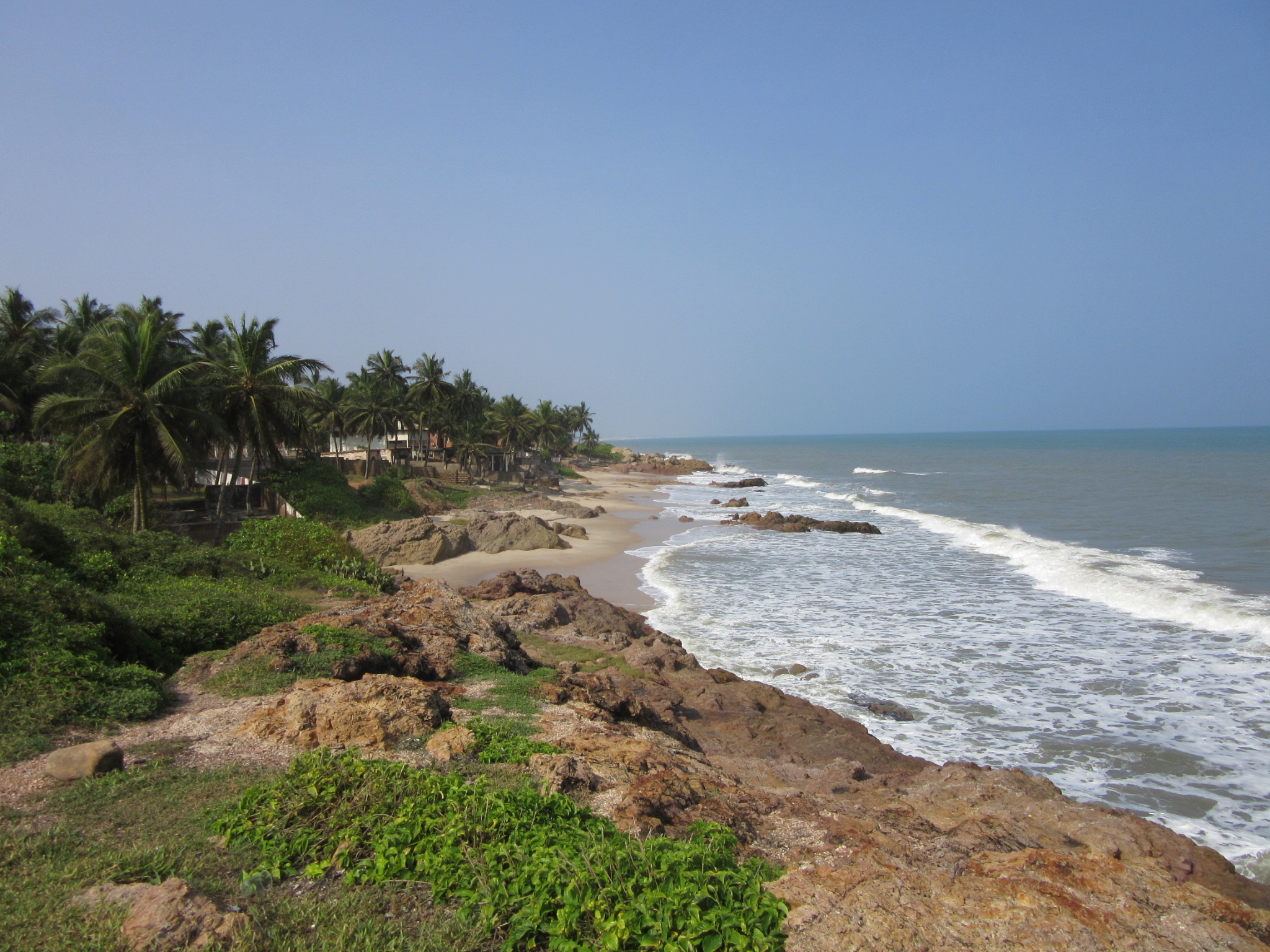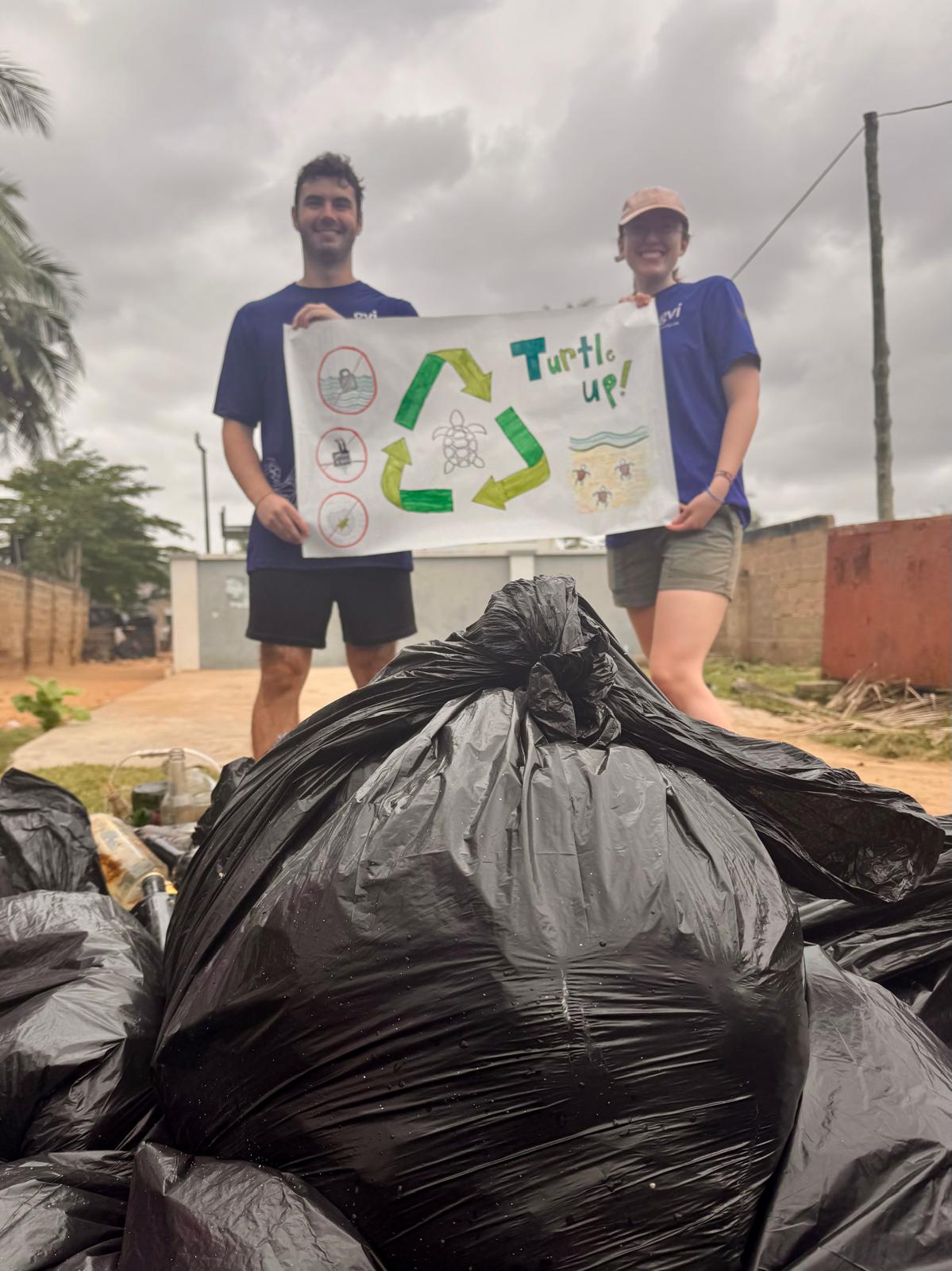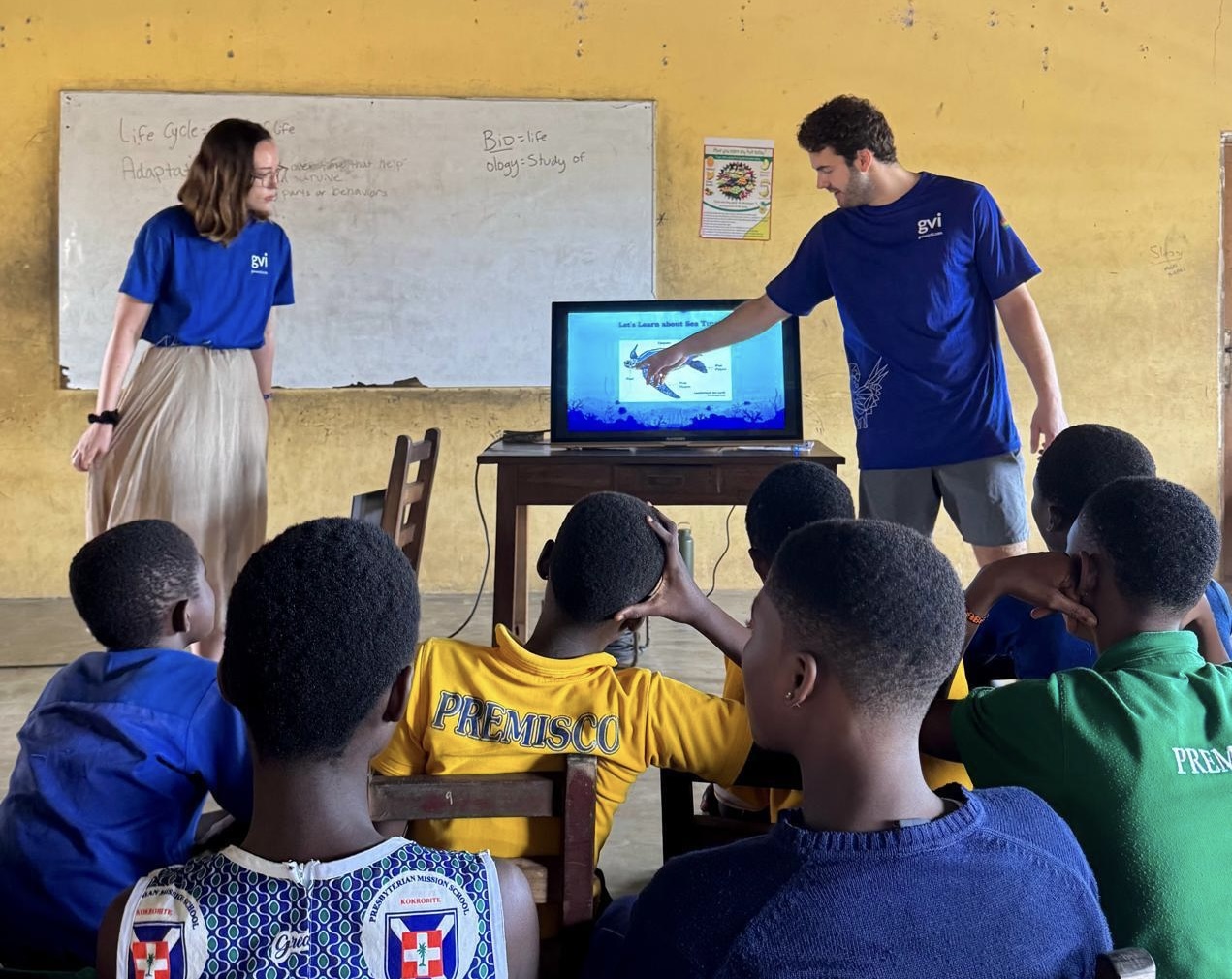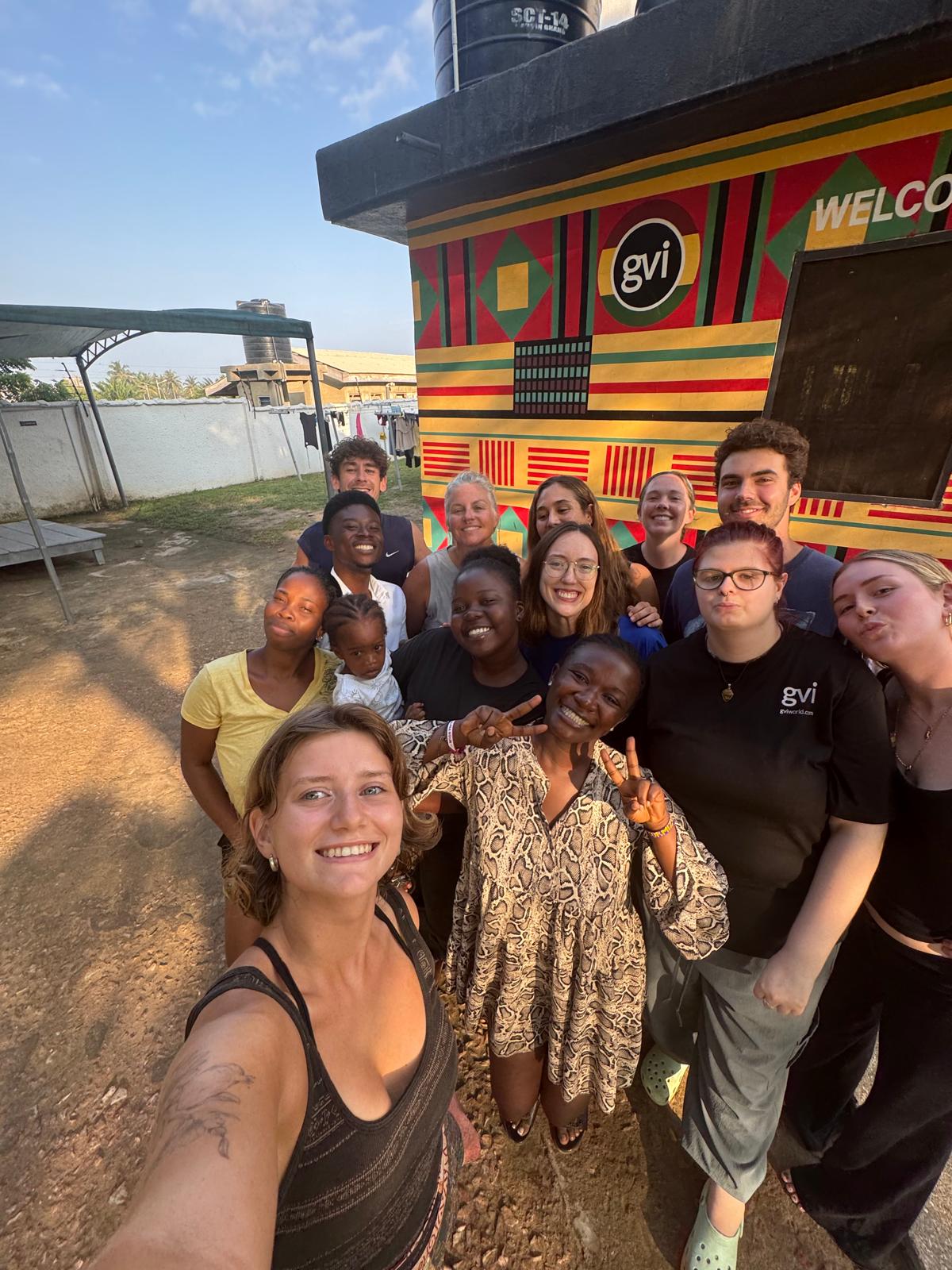
What does it really mean to advocate for conservation? For many college students, environmentalism exists mostly in theory—something studied in textbooks, discussed in classrooms, or shared in infographics. But for participants in Turtle Up’s eco-trips to Kokrobite, Ghana, conservation becomes a lived experience—personal, complex, and deeply transformative.
Turtle Up’s mission is rooted in the belief that the best way to become a sea turtle advocate is to witness their grandeur firsthand, to feel the sand beneath your feet where sea turtles nest, and to immerse yourself in the local communities that share their home with these threatened creatures. The eco-trips, designed for college students, provide a unique opportunity to blend hands-on conservation efforts with meaningful cultural exchange. Participants engage in beach cleanups, support local schools through educational outreach, and work side-by-side with trained turtle guides to learn about the challenges sea turtles face today.
Aidan Minnick, a recent participant, describes his experience as “transformative, purposeful, and developmental.” His decision to join the trip was driven by a desire to make a tangible impact and do value-driven work aligned with Turtle Up’s mission of strengthening community sustainability through sea turtle conservation.
Reflecting on the experience, Aidan noted how the trip reshaped his understanding of what conservation really looks like on the ground:
“It’s incredibly easy for us on the outside to label practices as sustainable or not sustainable… But once you are in local communities that do not have some (or many) of the everyday privileges we have, you realize that these issues and their implementation of local systems is far more complex than we think.”

This insight is at the heart of Turtle Up’s approach. Conservation is not one-size-fits-all—it must consider cultural context, local needs, and the lived realities of the communities involved. Rather than imposing outside solutions, Turtle Up emphasizes collaboration and mutual respect. The turtle guides, for instance, are not only experts in sea turtle behavior and nesting patterns, but also friendly partners who openly share their knowledge and experiences with participants.
One of the most memorable aspects of the trip for Aidan was engaging with the local community, especially the children. During classroom visits, he was struck by their attentiveness and eagerness to learn:
“They are naturally so intelligent, but not all of them have the resources to flourish to their full potential. It made me realize how important it is to empower others.”

The eco-trips also confront participants with the stark realities sea turtles face—particularly plastic pollution and the threat of sea level rise, which severely endangers nesting habitats. Witnessing these environmental threats firsthand shifts the conversation from abstract concern to urgent action. Participants return home with a deeper, more personal understanding of why conservation matters and what it takes to protect vulnerable species.
Perhaps one of the most important takeaways is learning to lead with empathy. As Aidan explained,
“This experience really opened my eyes to just how many challenges there are to conservation work… It has really helped me to empathize with other situations and perspectives.”

Turtle Up’s eco-trips are more than just volunteer opportunities; they are journeys that foster personal growth, global awareness, and a commitment to sustainable change. For students considering participating, Aidan offers this advice:
“Go in with an open mind. Do not draw conclusions right away and withhold any judgement. Approach issues and different perspectives with an attitude of curiosity and desire to understand, not prove anything.”
In the end, what participants remember most isn’t just the sea turtles or the beaches—it’s the people, the connections, and the perspectives they gain. As Aidan shared,
“I will remember the people that I met, the smile on kids’ faces when we walked into the classroom, and the perspectives that I gained throughout the process. I will remember that everyone is doing their best, regardless of how it appears on the outside.”

Join the Movement
If you’re a college student passionate about conservation, sustainability, or simply eager to grow through meaningful experiences, consider applying for Turtle Up’s next eco-trip to Ghana. You’ll return not just with knowledge, but with purpose, understanding, and a renewed sense of how small actions—rooted in community and connection—can protect our planet and its creatures.
